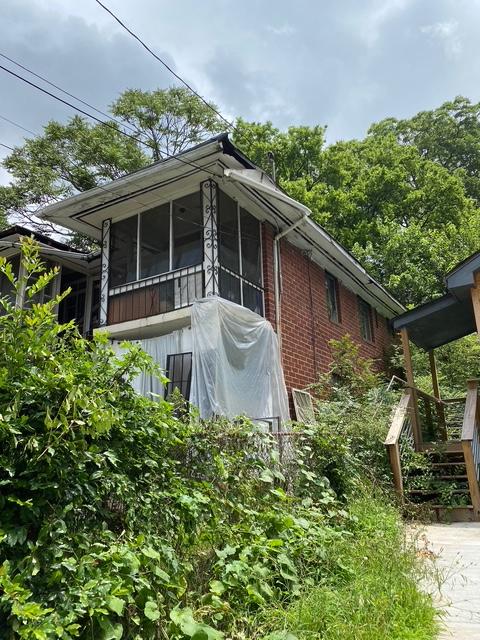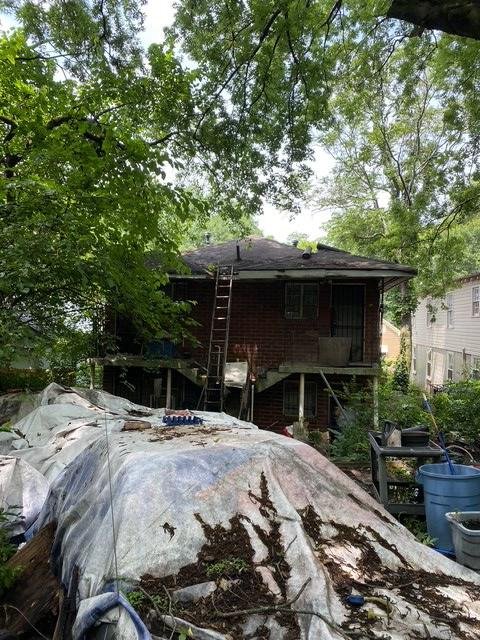
You can’t put a tarp over lipstick on a pig.
Hey. This might not be for you, however do you know anyone who is interested in investing in apartment building and multi-family property renovations? How about new builds?
If so, then the first thing that a multi-family property investor likely knows is that they need to raise capital for #1 Reserve Funds #2 Operating Capital #3 everything else.
How do you raise capital?
Rent growth uncertainty is likely the primary obstacle for many conservative capital sources when they underwrite loans.
One particularly popular category is “value-add” buys of multi-family properties, in locations with good fundamentals. Properties like these, whether they are 5 years old or 75 years old are almost always good investments when properly managed.
Entities like family offices, hedge funds, and other types of private capital firms face many of the same challenges that banks and commercial lending institutions face.
Everyone knows that there are market insurance conditions that are unique to every single type of property in every location. Insurance costs are through the roof in coastal areas and there are many, newly established flood zones. Reinsurance gives even less capacity – less insurance is available, and they will charge you more for it!
What should a multi-family investor in Georgia do right now to be ready for opportunities in the future?
- Smart investors know that rates are staying higher for longer than many forecasted earlier this year.
- Investors who buy and hold in good locations know that entitlements have substantial value.
- Buyers with brains know that 2025 will bring more distress in office, multi-family and many mixed-use asset sub-classes.
- Business owners and investors must get hyper-focused on Net Operating Income.
- Circumspect investors making big business plans need to distinguish distinctly between wishes vs musts.
- Good operators control expenses.
- Smart investors leverage technology systems and tools.
Wait a minute, Lee, all that lingua franca sounds so institutional. That sounds like corporate consultant speak and seminar gibberish. What’s in it for the the average real estate investor in Georgia?
Furthermore, are the “hard money” lenders being more “flexible?”
Based on my observations, once a hard money lender gets the exact story of a borrower, then they can be predictive about roadblocks to lending them funds. Good hard money lenders take care and do the detailing. Good hard money lenders and good borrowers have been thriving in the past 2 years in metro Atlanta real estate. The diligent, veteran hard money lenders in Georgia, like Lima One Capital and Ron at Hard Money Georgia will be clear with any borrower that private credit, or hard money is often not more expensive than a private bank or a private debt fund. They just need to get to know you and your property.
Hard money = more leverage for many, right now.
I read that debt fund sellers are likely to move on their warehouse lines and reveal some inventory explosions – I don’t know how that will effect Georgia submarkets like Dekalb and Fulton, however I’m keeping up with the best sources daily and I expect more multi-family properties to be for sale in 2025-2027 than in the past 5-6 years combined.
“The next 18 months are expected to see a gradual normalization of transaction volumes, with opportunities in both traditional and alternative real estate sectors.” Clarion Partners’ Drew Fung and CBRE’s James Millon – October 29, 2024.
No doubt, traditional banks and other lenders have pulled back from many multi-family renovation loans and construction loans. As I stated, rent growth uncertainty is often the most significant conservative underwriting guideline for everyone involved.
There is some distress in Atlanta – some who entered multi-family properties in the past 5 years paid too much for their properties, are under-capitalized and they wrote business plans that did not work.
“Much of the worry over U.S. commercial property has legitimately centered on the office market, where more than $38 billion in buildings were in distress as of March, compared with about $10 billion for apartments, according to MSCI. But multifamily buildings make up the biggest share of properties with potential distress—exceeding even offices—with more than $56 billion worth of real estate at risk of financial trouble, the firm’s data show.
And unlike office buildings, largely backed by major financial institutions, much of the unraveling is centered on personal investors.
Apartments were supposed to be an ironclad investment, protected on the downside by the basic hierarchy of human needs, with a potential for outsized returns as the country’s persistent housing shortage sends rents ever higher. But financial firms went hunting for ways to earn greater returns by taking bigger risks. Upstart landlords like Western Wealth Capital, in which Nathe invested her money, specialized in speculative fix-and-flip deals, levering up with loans that were often then packaged as securities and sold to institutional buyers.” Bloomberg News June 6, 2024
When those business plans become cheap fixes, shortcuts and negligence galore well those landlords can’t “push rents” when they are placing lipstick on a pig. Not in this market!

 Facebook
Facebook
 X
X
 Pinterest
Pinterest
 Copy Link
Copy Link
